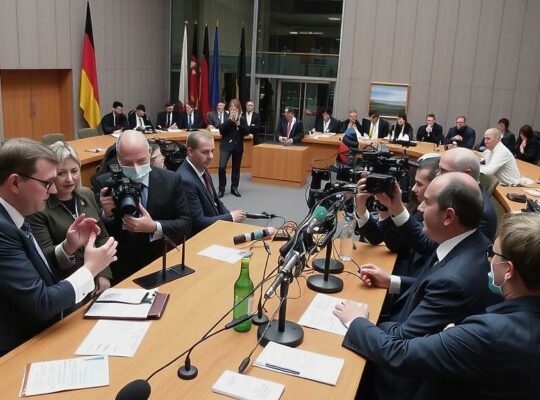Germany’s cinematic landscape faces a precarious future, shadowed by dwindling attendance and a growing dependence on Hollywood blockbusters, according to experts marking the 130th anniversary of German cinema. While the local comedy “Kanu des Manitu” achieved remarkable success, drawing over three million viewers, the overall picture remains one of decline, with many cinemas struggling to remain viable amidst fierce competition from streaming services.
Media scholar Klaus Goldhammer voiced his concerns in an interview with the Rheinische Post, highlighting the continued downward trend in audience numbers that persists despite recent relative successes. He cautioned that the anniversary year has not yielded any significant improvements for the industry, acknowledging that cinema’s role has fundamentally shifted in the age of readily accessible online entertainment.
The challenges extend beyond just attracting viewers; the content being offered is also under scrutiny. Christine Berg, head of the German Film Theaters Association (HDF), emphasized a critical gap in appealing to younger demographics. She stated the industry is failing to adequately serve the 14 to 25 (and up to 30) age group, a generation increasingly engaged with digital platforms.
Berg’s call for change isn’t limited to content; it extends to the industry’s pervasive reliance on American productions. She points out that US films currently dominate the German market, accounting for roughly 75% of screenings. The HDF is pushing for a drastic shift, setting a target to increase the share of German films to over 30%, which would equate to approximately 35 million tickets sold annually. Last year, German films accounted for a market share of just over 20%, with sales of roughly 17.7 million tickets, demonstrating the considerable hurdle ahead.
The situation demands a strategic re-evaluation of funding models, distribution networks and production strategies. Without a concerted effort to foster a more diverse and locally relevant film offering, the future of German cinema and its contribution to national culture, hangs in the balance. The current trajectory suggests a potential erosion of a vital industry and a deepening dependence on foreign content, potentially stifling the development of uniquely German voices and perspectives.












